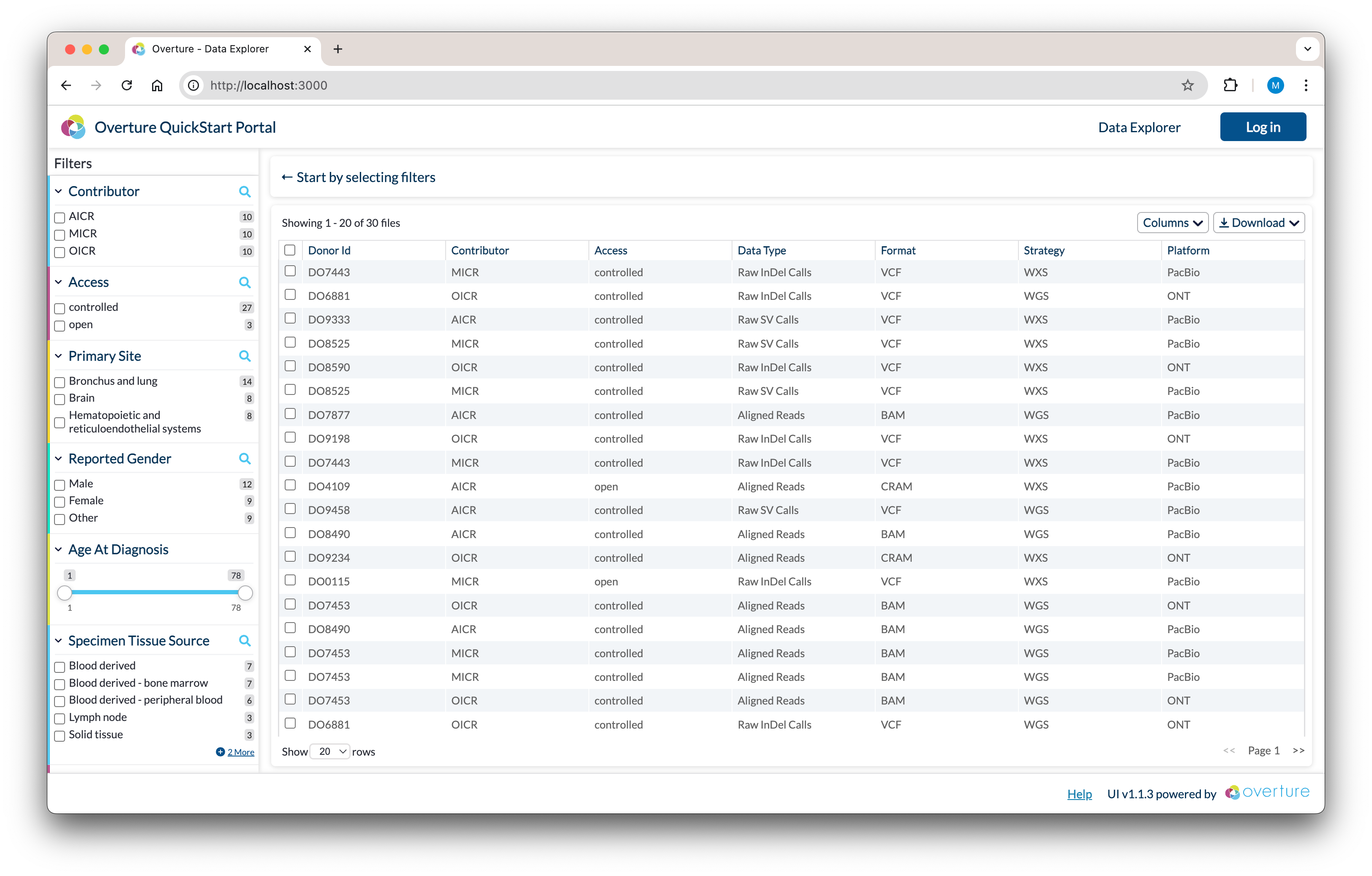Overview
Stage is a simple yet powerful React-based user interface framework designed to facilitate the creation of browser-accessible data portals. While versatile enough to be used for various web applications, Stage is specifically tailored for building the front-end of data management platforms. It provides a robust foundation for developers to rapidly construct and customize data-centric web interfaces.

System Architecture
Stage functions primarily as a scaffold for creating custom data portal user interfaces. It achieves this by providing fundamental portal UI components for navigation, authentication, and data exploration.
As part of the larger Overture.bio software suite, Stage is typically used with multiple other services including:
- Arranger Server: A search API service that generates a GraphQL API from Elasticsearch mappings, providing an intermediary layer that simplifies querying and filtering Elasticsearch data using SQON syntax, without directly interacting with complex Elasticsearch queries.
- Arranger Components: A library of React components for building interactive search UIs. Includes faceted search, data tables, and SQON viewers. Communicates with Arranger Server to fetch and display data.
- Keycloak: The authorization and authentication service used to provided OAuth2 authentication and API key generation for Stage.
Key Features
- Modular Architecture: Stage offers a flexible, component-based structure that allows for easy customization and extension of the user interface.
- Identity and Access Management: Pre-built login and profile pages integrated with Keycloak, supporting various SSO-identity provider logins including Google, GitHub, LinkedIn, and ORCiD.
- Data Exploration UI: Seamlessly integrates with Arranger for powerful, API-linked data exploration components.
- URL Parameterization: Supports dynamic URLs that can be modified or updated based on input parameters, enhancing the flexibility and shareability of application states.
- Extensible Layout: Provides a customizable foundation for creating tailored UIs, including configurable footer and navbar with primary and secondary menus.
- Theme Customization: Utilizes Emotion for dynamic styling, offering fine-grained control over individual component appearances.
Repository Structure
.
├── /components/
│ ├── /pages/
│ ├── /theme/
│ └── /utils/
├── /global/
│ ├── /hooks
│ └── /utils
├── /pages/
│ ├── /api/
│ ├── /explorer/
│ ├── /login/
│ └── /user/
├── /public
└── /tests
Click here to view the Stage respository on GitHub
-
Components: UI elements and tools used to compose Pages and features throughout the application. Includes standardized reusable elements for navigation, page layout, error states, theming, and page-specific features.
-
Pages: The central location for the main application file and all page routes, based on Next.js Pages Routing system. This contains the root _app.jsx file and individual folders/files for each navigable page in the site. Implements code found in /global and /components.
-
Global: Utilities, definitions and configuration related to core processes for running the application, or used widely throughout the app. Covers functionality such as authentication & authorization, environment & context sharing, URL management and Page construction.
-
Public: Static assets such as SVGs and other images used by the interface.
-
Tests: Unit tests built in Jest for insuring code stability.
